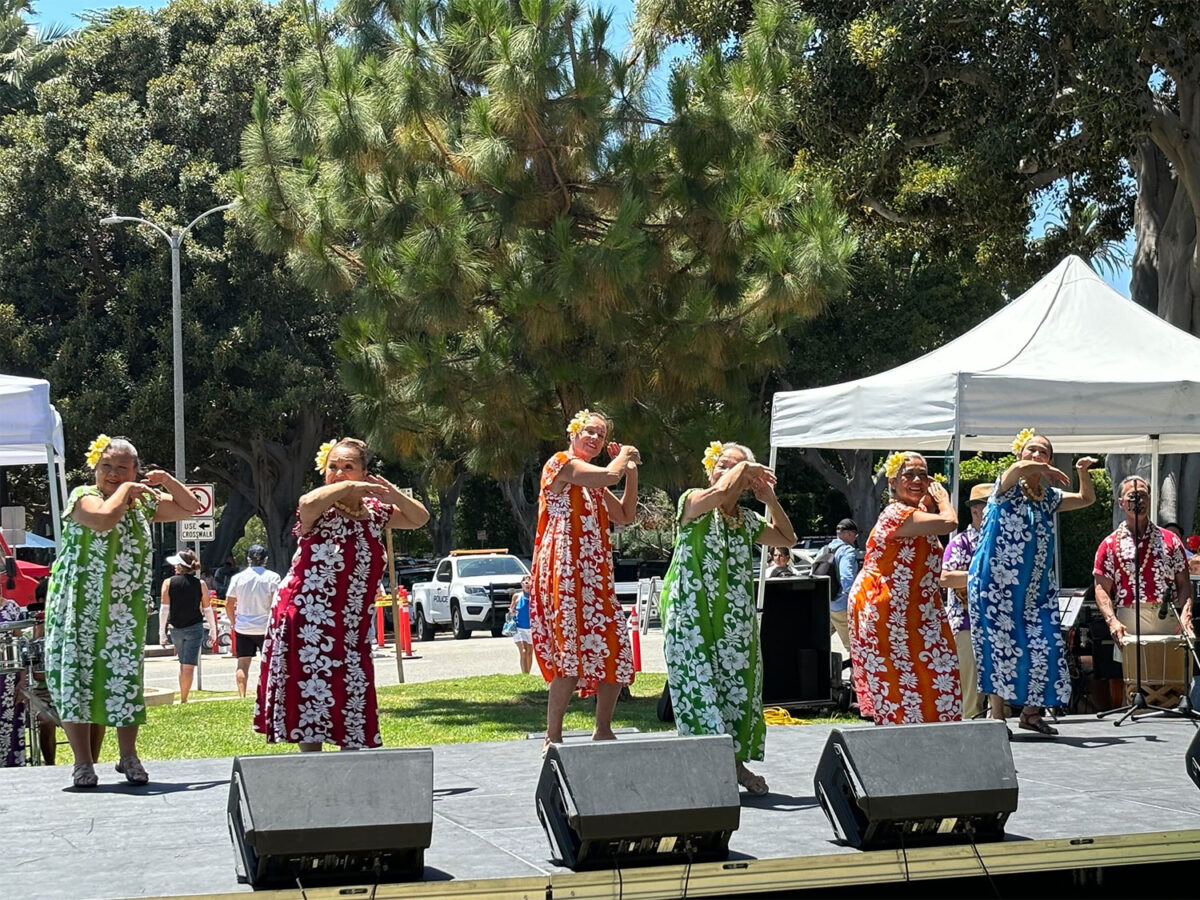The Beverly Hills Rent Stabilization Division held a Rent Stabilization Tenant Legal Training on Feb. 24. Presented by nonprofit legal aid law firm Bet Tzedek, the forum provided Beverly Hills residents with a crash course on the protections for tenants during the COVID-19 pandemic. Since the pandemic shut down large sectors of the economy, local, state and national lawmakers have worked to stave off a potential eviction crisis. But nearly a year into the economic lockdown and the bramble of services and protections can prove confusing to tenants. And, as it turns out, even to public servants.
“I do want to emphasize that it is confusing. This is a very confusing time. And none of us have been through a time where we’ve seen legislation rolled out so quickly,” said Deputy Director of Rent Stabilization Helen Morales. “That’s why it’s important that you get legal advice.”
As a part of its own COVID-19 relief efforts, Beverly Hills offers free legal services to eligible residents through Bet Tzedek. During the forum, representatives from Bet Tzedek explained to the more than 100 participants the different levels of protection available to tenants now.
Bet Tzedek went through the local, state, and national protections currently in place to assist tenants impacted by COVID-19. None of the protections guarantee that a landlord cannot evict a tenant. For instance, landlords can still make “just cause” evictions. But for tenants experiencing hardship due to COVID-19, protections and assistance exist.
Even prior to the pandemic, the Beverly Hills Rent Stabilization Office gave protections to the city’s renters, including a rent cap on eligible rentals, just cause eviction requirements, and relocation fees for eligible units.
In response to COVID-19, Beverly Hills passed an urgency ordinance on March 15, 2020 that imposed a moratorium on residential evictions of those impacted by COVID-19. The ordinance lays out the process by which tenants can assert a lawful inability to pay some or all of their rent.
Jonathan Alvarez, a paralegal with Bet Tzedek, elaborated on what constitutes a financial impact from COVID-19 under the urgency ordinance. Financial impacts can stem from being sick with COVID-19 or caring for someone in your household with the virus; loss of employment, decrease in work hours, or reduced income; compliance with stay-at-home orders; or out-of-pocket medical expenses related to COVID-19.
Alvarez also explained what someone must do in order to assert financial impact. A tenant must notify their landlord of financial hardship due to the pandemic within seven days after the date rent is due. Within 30 days, they must complete the “Residential Tenants Impacted by COVID-19” form along with supporting documentation. Additionally, the tenant must provide the amount of rent they can pay in lieu of the full amount.
In response to a question, Alvarez clarified that tenants only need to submit the COVID-19 form once to their landlord and once to the city. He advised, though, that tenants should keep proof of having sent the forms in. One question that Alvarez said comes up frequently is whether or not landlords have to confirm receipt of the COVID-19 form. “There’s no language that the landlord is required to confirm it,” he said.
Alvarez provided examples of documentation that renters can use to prove a financial impact. He listed a letter from an employer, a profit and loss statement, and a bank statement showing reduced income.
If a landlord disputes a tenant’s claim of financial impact, the issue can go to the Rent Stabilization Commission for adjudication. Landlords can contest three different parts of the tenant’s claim: whether the tenant has suffered financial hardship, whether that hardship stems from COVID-19, and the amount of rent the tenant claims they can pay.
The presentation also covered the protections established by the state. Most recently, California extended and strengthened the state’s eviction moratorium on Jan. 29 with Senate Bill 91. The bill also created the State Rental Assistance Program, which funnels $2.6 billion in aid to both renters struggling with payments due to the COVID-19 pandemic and also landlords. Bet Tzedek attorney Hana Kommel explained the steps necessary to take advantage of state protections.
Like with the Beverly Hills ordinance, state law requires that tenants complete a declaration of financial distress related to COVID-19, which is signed under penalty of perjury. State law divides rent into two time periods: rent owed from March 2020 to August 2020 and rent owed between September 2020 to June 2021.
For rent owed between March and August 2020, “all you have to do is give the declaration of COVID-19-related financial distress,” said Kommel. “If you do that, that means that your landlord cannot use this unpaid rent to evict you and you can never be evicted for not paying that rent.”
For unpaid rent between September 2020 and June 2021, in addition to submitting a declaration of COVID-19-related financial distress, tenants must pay 25 percent of the rent to gain eviction protections. Tenants do not have to make the payments monthly–although they can–but must submit the required 25 percent by the end of the period covered by the protections. For rent owed in either time period, declaring COVID-19-related financial distress does not erase the rent.
Just like with the Beverly Hills COVID-19 form, SB 91 provides potential categories under which a tenant can claim COVID-19-related financial hardship, including the following: loss of income, increased expenses, childcare or family responsibilities, and then general financial impact. To successfully gain state protections, these reasons must stem from the impacts of COVID-19.
For the state protections, tenants do not need to provide proof of COVID-19 financial impact unless they qualify as “high income,” which is defined as 130 percent the area median income for Los Angeles with a household income of $100,000. Landlords must already have evidence of their renter’s income prior to sending a 15 day notice of eviction–if, for instance, the renter submitted proof of income when first applying for the unit.
One listener posed a hypothetical question about what would happen if they lost their job, but then received more money in unemployment benefits than they made at their former job. Would they qualify for eviction protections?
No, Kommel said. The declaration of financial distress related to COVID-19 includes language that says that public assistance that the tenant has received does not make up for their loss of income and/or increased expenses. But in the hypothetical, that would not be the case.
Repayment Question
The rules and timetables for rent repayment are confusing even to experts. The Beverly Hills urgency ordinance gave residents until one year following the end of the emergency declaration to repay back rent, but that timeline was supplanted by SB 91. Under the state provisions, landlords can pursue back rent in small claims court as early as Aug. 1. Contradictorily, SB 91 also gives tenants until Aug. 31 to repay rental debt. The law also prevents local jurisdictions from expanding the repayment period past Aug. 31.
Bet Tzedek attorneys expressed wonderment at the state law, speculating that the narrow repayment window may have been made in error.
Other new protections included in the state law are that tenants cannot be charged late fees and landlords cannot apply security deposit to unpaid rent unless given written permission by the tenant. The law also ensures that rental debt cannot count against tenants looking for new housing.
“The language currently reads that the repayment period ends August 31, 2021,” Green said. “We’re wondering, is this a mistake? Will they change this, will they rectify it? Because as it currently reads, it doesn’t really provide a reasonable amount of time for Beverly Hills residents to repay rent all the way [back] to March.”
Green said that he is waiting for additional legislation to clarify the confusion. Kommel, who said she first thought the one month window was a typo, said that the legislature is currently looking at the issue.
The forum also explained the new State Rental Assistance Program established by SB 91. The program incentives property owners to forgive back rent. By waiving 20 percent of unpaid rent, landlords become eligible for 80 percent in rent reimbursements for amounts owed between April 1, 2020 and March 31, 2021. If a landlord does not agree to participate in the program, qualified tenants can still receive 25 percent of the total back rent for the covered period.
The rent subsidies are available to households with incomes at or below 80 percent of Area Median Income, with priority for the most disadvantaged households and those experiencing unemployment for the preceding 90 days at the time of application. Applications open on March 15, though they could open up earlier, Kommel said. Given budgetary restraints, it is possible that not all eligible applicants will receive assistance.
The final layer of eviction protections come from the Centers for Disease Control and Prevention (CDC). But Bet Tzedek attorneys warned that the CDC protections should only be used as a last resort. The country-wide order can temporarily stop evictions through April 2021.
Green acknowledged the daunting amount of material out there for those looking for help and had one recommendation for all of them. “It’s a confusing time for everybody, not just the tenants that are in these situations, but for legal advocates, as well,” he said. “The best thing to do is to not sit around and guess what your options are if you need some help. We’re here. We’re available.”







